EngD Students
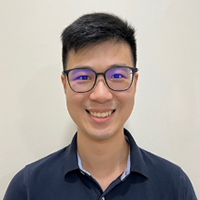
sgsmuscis-pgp-doctoral-engd-students
GOH See Ting
Advanced Technologist, Product Development Digital, Boeing Commercial Airplanes
Intake Year: January 2026 (Part-Time)
With over 10 years of experience in digital transformation and data analytics, I am currently an Advanced Technologist in Product Development Digital at Boeing Commercial Airplanes. I work with cross‑regional, multidisciplinary teams in Seattle, Germany, Ukraine, and India to translate concepts into practical solutions, evaluate technical feasibility and business viability, and advance selected solutions to TRL‑6. My background is in data science, AI/ML, and software engineering, complemented by design thinking and entrepreneurial experience. I hold a Master of Technology in Knowledge Engineering and a Bachelor of Engineering (specialising in Computational Engineering Science). Prior to my current role, I had built technology startups ranging from SaaS businesses to deep-tech solutions in the healthcare sector.
My motivation for pursuing Doctor of Engineering at SMU SCIS is to deepen my technical expertise in a practice‑oriented academic environment and to explore ways to implement new technologies in aviation. My proposed research will explore how human–AI teaming and supporting interfaces can improve coordination between flight and ground teams to enhance turnaround predictability and reduce delay propagation, particularly for short‑haul operations with rapid turnarounds. The goal is to develop practical, system‑level approaches for human–AI teaming in aviation that translate into operational improvements while ensuring safety and certification requirements are met.
Dissertation Committee
-
Research Advisor:
- WANG HaiAssociate Prof
- Aldy GUNAWANAssociate Prof
Co-Research Advisor:
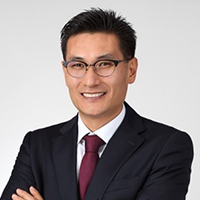
sgsmuscis-pgp-doctoral-engd-students
Jonathan Dohyung AHN
Head of Research, Agentic AI Start-up (Inductiv.co)
Former APAC CIO and Global IT Director at Multinational Corporations
Intake Year: January 2026 (Part-Time)
I am a global digital and technology leader with over 20 years of experience driving enterprise-scale digital transformation. This is across life sciences, healthcare, and FMCG sectors in APAC and international markets. I have held senior leadership roles including APAC CIO and Global IT Director, leading complex transformation programmes spanning enterprise data platforms, AI-enabled decision systems, omni-channel engagement, and technology governance in highly regulated environments.
My strengths lie in combining academic curiosity with executive-level execution. Professionally, I have led global digital ecosystems, enterprise data and analytics platforms, and AI-enabled decision support solutions deployed across multiple regions. Academically, I have strengthened my foundation through advanced executive education in data, AI, and healthcare analytics. I now seek to contribute towards applied research that is both theoretically grounded and practically actionable.
I have chosen to pursue the Doctor of Engineering (EngD) to bridge deep industry practice with rigorous, applied research. Through my executive career, I have observed that while many organisations invest heavily in artificial intelligence, relatively few had achieved trusted adoption, sustained value creation, or measurable return on investment. This gap between AI potential and real-world impact motivated me to pursue a professional doctoral pathway focusing on solving industry-relevant problems through applied research.
I have selected the SMU SCIS EngD for its strong emphasis on industry-driven research, socio-technical systems, and real-world validation. The programme’s applied orientation, combined with Singapore’s innovation ecosystem, aligns closely with my belief that successful AI adoption requires not only technical capability but also thoughtful integration of human roles, trust, governance, and organisational context.
Dissertation Committee
-
Research Advisor:
- Archan MISRAVice Provost (Research) Prof
- ZHOU PanAssistant Prof
Co-Research Advisor:
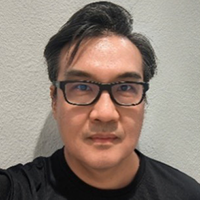
sgsmuscis-pgp-doctoral-engd-students
Andy TAI Hock Lin
Director / Lecturer, ANN-SENSE PTE. LTD.
Intake Year: August 2025 (Part-Time)
I am a lecturer with a focus on teaching data analysis, artificial intelligence (A.I.), data science, and programming courses across several Institutes of Higher Learning (IHLs). My career spans government, corporate, and education sectors. Perhaps, due to this unique blend of interdisciplinary domains, I have a strong interest in tracking the development of key technologies, seeing how they are being assimilated in our lives, and understanding the forces that shape that diffusion.
Today, few would dispute that the most promising A.I. advancement lies in Generative Models in the likes of ChatGPT, Gemini Chat, Llama, etc. However, while the future is already here, it remains unevenly distributed – even though access to these tools is no longer a barrier. Despite ChatGPT’s debut in late 2022, students still struggle to learn, industries remain slow to automate, uncertainty still looms, and we have not grown wiser.
While the specific reasons for this shortfall are multifaceted, my research focus seeks to address this gap by exploring how generative models can support more effective learning and teaching. Specifically, I am investigating how these models can produce more cogent, multimodal explanations beyond text, thereby enhancing educational outcomes, fostering reskilling and upskilling, and contributing to a more adaptive and resilient workforce. In doing so, I hope to bridge the divide between technological promise and meaningful human progress.
Dissertation Committee
-
Research Advisor:
- WANG ZhaoxiaAssociate Prof
- MA YunshanAssistant Prof
Co-Research Advisor:
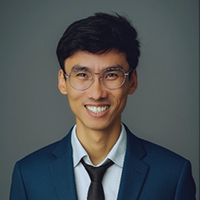
sgsmuscis-pgp-doctoral-engd-students
CHIN Joo Ern
Deputy Manager, Analytics & Artificial Intelligence, ST Logistics
Intake Year: August 2025 (Part-Time)
With over 8 years of diverse experiences spanning railway transportation and sensor analytics, e-commerce intelligence, and logistics automation, I am currently pursuing a Professional Doctoral Degree in the SCIS EngD programme while heading the Analytics & AI department at ST Logistics, driven by my belief that AI should solve real-world problems and consider realistic business performance requirements rather than exist in academic isolation. Fragmented technological research and implementations create organizational silos that prevent meaningful digital transformation, and I look forward to learning from like-minded individuals who seek to advance their various industries and specializations.
The SMU EngD programme's emphasis on translational research resonates deeply with my philosophy that academic rigor must serve practical purposes. I am committed to developing AI solutions that address the fundamental challenges organizations face when implementing intelligent systems at scale, ultimately creating technology that empowers rather than replaces human decision-making across diverse industries.
My proposed research directly addresses these challenges by developing resilient and adaptive systems using multi-modal AI for complex supply chain networks. The work will fall within the entire spectrum of AI applications in supply chains: (i) application of LLMs for global supply chain resiliency, (ii) systems that conduct demand forecasting and simulated back testing for inventory management, (iii) space, scheduling and route optimization for storage and delivery. The goal is to address the billions lost annually to supply chain inefficiencies by creating systems that fit within the end-to-end supply chain framework – preparing for disruptions in advance, optimizing inventory automatically during volatility, and minimizing transportation waste through intelligent routing.
Dissertation Committee
-
Research Advisor:
- Aldy GUNAWANAssociate Prof
- CHENG Shih-FenAssociate Prof
Co-Research Advisor:
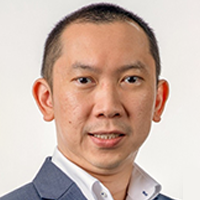
sgsmuscis-pgp-doctoral-engd-students
Lawrence ONG Weng Hwee
Deputy Director (Maritime Decarbonisation | International), Maritime and Port Authority of Singapore
Intake Year: August 2025 (Part-Time)
The SMU EngD programme marks the convergence of my journey through chemical engineering, shipboard operations, and over a decade of climate diplomacy—now focused on applying computational approaches to help advance sustainable maritime transport.
My foundation in chemical engineering sparked a curiosity in fuels and the systems that power our world. This was further shaped by my experience as a Naval Officer, where I developed a deep appreciation for maritime systems and shipboard operations.
For over a decade, I worked at the Singapore Ministry of Transport, contributing to the development of climate policy across aviation, maritime transport and land transport. In that time, I had the opportunity to represent Singapore at the United Nations Framework Convention on Climate Change (UNFCCC) Conferences of the Parties, as well as at UN specialised maritime and aviation agencies. These experiences gave me practical insights into how global sustainability goals are negotiated, shaped, and implemented.
Today, I oversee maritime decarbonisation efforts at the Maritime and Port Authority of Singapore, collaborating with global partners to accelerate the energy transition in shipping. My recent focus on artificial intelligence, optimisation, systems modelling, and quantum computing has added a new analytical lens to address the complexities of maritime sustainability.
My research centres on developing computational frameworks that integrate quantum-enhanced voyage optimisation with maritime fuel market modelling. It aims to support shipping companies, regulators, and other stakeholders in making robust decisions on route planning, fuel procurement, and technology adoption, grounded in real-world operational constraints, while navigating the evolving decarbonisation landscape, including strategies set by the International Maritime Organization (IMO), and contributing to the global transition towards net-zero shipping.
Through the SMU EngD, I seek to bridge engineering, maritime operations, climate policy, and computational approaches to contribute meaningfully to the maritime sector’s
Dissertation Committee
-
Research Advisor:
- LAU Hoong ChuinProf
- Paul Robert GRIFFINAssociate Prof
Co-Research Advisor:
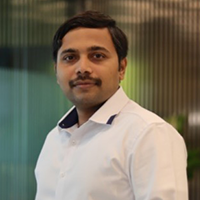
sgsmuscis-pgp-doctoral-engd-students
MOHAMED Dhameem
Director – Lead Data Scientist, UBS AG
Intake Year: August 2025 (Part-Time)
With over 17 years of experience in global financial services, I have led transformative AI initiatives by architecting enterprise-grade AI, ML, and generative AI solutions. These solutions convert unstructured data into actionable insights. I have overseen multiple projects from end-to-end proofs of concept through to production deployments, ensuring these innovations deliver real-world value.
Given my background, pursuing the Doctor of Engineering at SMU was a natural step to formalize my expertise at the intersection of industry practice and applied research. I am committed to responsible AI innovation, rigorous governance, and continuous delivery at scale. SMU’s industry-embedded curriculum, close partnerships with leaders in the financial industry and regulatory bodies, and its part-time structure perfectly align with my professional and scholarly goals.
My research will focus on “A Framework for Trustworthy, Scalable Autonomous AI Systems in Banking.” This work involves developing and validating an end-to-end methodology for converting unstructured information into structured data models and defining best practices for system design. The framework will embed trust and explainability, ensure security and data privacy, and meet performance, scalability, and regulatory requirements.
In support of this framework, I will deliver open-source data ingestion modules and governance metrics that comply with GDPR and other international regulatory standards. By making these components publicly available, I aim to accelerate the secure, transparent adoption of AI in financial institutions. This approach will unlock new automation opportunities, strengthen regulatory compliance, and enhance customer trust.
Dissertation Committee
-
Research Advisor:
- LEE, MinAssistant Prof
- NAH, Fiona Fui-HoonProf
Co-Research Advisor:
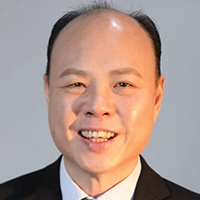
sgsmuscis-pgp-doctoral-engd-students
TAN Chin Khoon
Senior Lecturer, Nanyang Polytechnic
Intake Year: August 2025 (Part-Time)
With over 25 years of experience in the IT and cloud industry across the Asia Pacific region, I have played a key role in delivering enterprise-level digital transformation initiatives on cloud. Throughout my career, I held senior leadership positions at Huawei and Amazon Web Services (AWS), where I was responsible for designing and implementing large-scale cloud adoption strategies, guiding infrastructure and application modernization, and enabling mission-critical migrations for clients in industries such as finance, telecommunications, manufacturing, retail, and the public sector.
Currently, I contribute to education by serving as a Lecturer, where I teach DevOps on cloud computing and cybersecurity. This teaching role allows me to mentor the next generation of technology professionals and reinforce my belief in continuous learning and knowledge sharing.
The Doctor of Engineering (EngD) programme at Singapore Management University (SMU) presents an ideal opportunity to combine academic inquiry with deep practical expertise. I am particularly drawn to the programme’s applied research orientation, strong faculty-industry linkage, and commitment to solving real-world problems. These attributes closely align with my aspiration to transition into research and thought leadership that advances both industry and academic impact.
My proposed research focuses on building an intelligent decision support framework using spatial analytics, artificial intelligence models, and mathematical optimization techniques such as mixed integer linear programming and heuristic search. The goal is to enhance complex planning and resource allocation for urban systems and enterprise environments under conditions of uncertainty and competing priorities. I hope this research can deliver robust, data-driven models that enable strategic decision-making, operational resilience, and sustainable growth across multiple domains.
Dissertation Committee
-
Research Advisor:
- KAM Tin SeongAssociate Prof
- ZHENG BaihuaProf
Dissertation Committee Member(s):
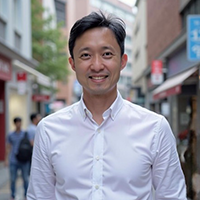
sgsmuscis-pgp-doctoral-engd-students
YAU Hon Tak (Sean)
Senior Business Manager, Markets Macro AME & ASA, Standard Chartered Bank
Intake Year: August 2025 (Part-Time)
I am currently a Senior Business Manager at Standard Chartered Bank, where I oversee Financial Markets operations across Africa, the Middle East, ASEAN, and South Asia regions. With over 16 years of extensive experience in the banking and finance industry, I have successfully led teams in Finance, FP&A, Treasury Data Analytics, and FX Product Control, demonstrating expertise in business strategy, operational excellence, and compliance. My professional journey includes roles at leading global institutions such as Barclays Bank, PricewaterhouseCoopers, and Ernst & Young.
I graduated from Singapore Management University (SMU) with Master of IT in Business (MITB) degree, where I further cultivated my passion for technology driven financial analytics and processes digitization. I am committed to leveraging data analytics and AI technologies to enhance decision-making, risk management, and regulatory compliance within financial markets.
Driven by the rapid advancements in artificial intelligence and the emerging challenges it presents to existing financial governance frameworks, I have chosen to pursue the Doctor of Engineering programme at SMU. My proposed research, titled "AI and Financial Governance: Identifying Risks and Strengthening Standards," focuses on identifying vulnerabilities introduced by AI applications in finance, developing methods for risk detection, and potentially proposing robust governance enhancements. I aim to contribute to safeguarding financial systems against emerging AI-related risks, ensuring continued financial stability, integrity, and accountability
Dissertation Committee
-
Research Advisor:
- Paul Robert GRIFFINAssociate Prof
- Alan MEGARGELAssociate Prof
Co-Research Advisor:
sgsmuscis-pgp-doctoral-engd-students
Kevin TAUKOOR Hemen
Senior Staff Automation Software Engineer, Illumina Singapore Pte Ltd
Intake Year: January 2025 (Part-Time)
With over 20 years of experience in the manufacturing industry, including the semiconductor and life sciences verticals, I have consistently led initiatives that drive greenfield automation, digital transformation, and Industry 4.0 advancements to deliver measurable business impact. My expertise lies in aligning technology innovation with strategic goals to enhance operational efficiency, foster sustainable growth, and position organizations for long-term competitive advantage. Pursuing the EngD program represents an investment in furthering this expertise, allowing me to explore how advanced technologies can address complex, real-world manufacturing challenges. The program’s rigorous structure and depth provide a platform to critically evaluate emerging technologies and align them with business priorities to bridge the gap between technological potential and organizational needs.
Recent coursework in Smart Industries and Digital Transformation, with a focus on Deep Learning, has reinforced my commitment to leveraging cutting-edge advancements like Generative AI to create transformative business value. From streamlining compliance processes and optimizing operational workflows to accelerating content generation and reducing time-to-market, Generative AI offers a strategic lever to simplify and scale complex engineering challenges. Through this program, I aim to deepen my ability to harness these innovations, ensuring they drive efficiency, enhance agility, and unlock new opportunities for growth in regulated, high-volume manufacturing environments.
Dissertation Committee
-
Research Advisor:
- Venky SHANKARARAMANVice Provost (Education) Prof
- WANG ZhaoxiaAssociate Prof
Co-Research Advisor:
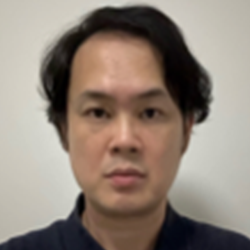
sgsmuscis-pgp-doctoral-engd-students
LOK Kek Wee
Senior Engagement Manager, OutSystems
Intake Year: January 2025 (Part-Time)
I began my career as a software engineer and quickly became obsessed with how software can be elegantly designed, developed, and managed, and its transformative impact on everyday life, where nearly everyone uses software on their computers or smartphones daily. Throughout my career of over 20 years, I have been involved in digital transformation software projects across a variety of industries and domains. This journey has provided me with extensive exposure, driving both my professional growth and a comprehensive understanding of the technical and business aspects of software. It has further deepened my passion for the industry and software engineering.
A key principle in my career has been a commitment to lifelong learning, particularly in the rapidly evolving IT landscape. I have experienced major technological shifts like mobile apps, big data, cloud computing, and now the exciting advancements in Generative AI. I am eager to be part of this new transformative shift and am keen to expand my knowledge in the field through systematic study, along with scientific and rigorous practice research. In light of this, pursuing the SMU Doctor of Engineering program feels like a natural next step for me. I chose SMU for its focus on applied research, strong industry connections, opportunities for learning and collaboration with distinguished faculty and an engaging learning environment within a beautiful city campus.
My research will focus on how software engineering can be reshaped through the integration of AI technologies, including AI agents, LLMs, and machine learning. The aim is to investigate multi-agent system frameworks, methodologies, and AI tools to automate key tasks, enhance decision-making, streamline workflows, and foster effective human-AI collaboration throughout the process. Furthermore, I believe the impact of my research will extend beyond software engineering, influencing how businesses adopt AI-driven processes to foster innovation, adapt to evolving market demands, improve efficiency, and maintain high-quality standards in their digital transformation efforts.
Dissertation Committee
-
Research Advisor:
- SHAR Lwin KhinAssociate Prof
- JIANG LingxiaoProf
Co-Research Advisor:
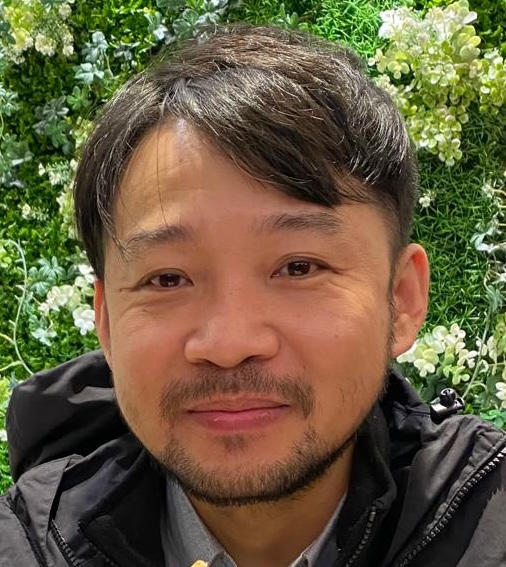
sgsmuscis-pgp-doctoral-engd-students
TAN Hua Beng (Shane)
Deputy Director, AI Platform, Home Team Science & Technology Agency
Intake Year: January 2025 (Part-Time)
I currently serve as a Deputy Director at Home Team Science & Technology Agency (HTX), where I focus on designing and building highly scalable and secure AI platform. My role involves collaborating closely with key stakeholders to enable an ecosystem of tools, infrastructure, and DevSecOps/MLOps practices that enhance the quality and speed of the AI application lifecycle. With over 22 years of professional experience across ICT and financial services organizations, my diverse roles—spanning system engineering, product management, cloud architecture, and security architecture—have given me a comprehensive understanding of the technical and strategic challenges within the IT domain.
The rapid advancement and proliferation of artificial intelligence (AI), combined with digitalization and an explosion of data, is revolutionizing industries and transforming lives. While AI offers immense potential for positive applications, it also equips cyber adversaries with advanced tools for sophisticated attacks. These advancements introduce challenges for cybersecurity, particularly in supporting digital transformation amid a global shortage of cybersecurity talent. Additionally, AI regulation and governance remain critical areas requiring further development. My proposed research focuses on AI for Security and the Security of AI, exploring how AI can enhance cybersecurity measures and ensure the trustworthiness of AI systems such as through innovative approaches to threat detection, data privacy, and AI model governance.
My decision to pursue the Doctor of Engineering (EngD) programme is driven by my desire to contribute to the safety and security of society by bridging the gap between cutting-edge academic research and real-world industrial applications. The applied research focus of Singapore Management University’s EngD programme aligns perfectly with my goal of developing practical and impactful solutions to address complex challenges in AI and cybersecurity. I am confident this programme will equip me with the tools and knowledge needed to innovate at the intersection of AI and cybersecurity while advancing academic and industry-relevant contributions.
Dissertation Committee
-
Research Advisor:
- Christoph TREUDEAssociate Prof
- JIANG LingxiaoProf
Co-Research Advisor:
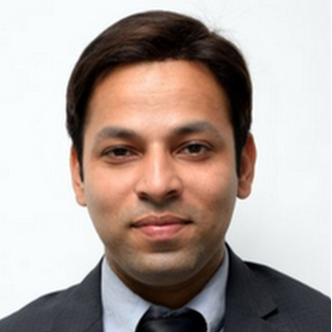
sgsmuscis-pgp-doctoral-engd-students
Prakhar GAUTAM
ASEAN GTM Head - Data & AI, Amazon Web Services
Intake Year: August 2024 (Part-Time)
Over the past 20 years, I have had the privilege of leading large technology teams dedicated to building and optimizing planet-scale cloud applications, with a specific focus on distributed systems and performance engineering. Last year, with the advent of generative AI, the entire technology landscape underwent a seismic shift. As I took on the responsibility of Google's AI practice in APAC, I immersed myself in the cutting edge of this rapidly evolving field. My desire to deepen my knowledge and contribute to this exciting new frontier has brought me back to academia to pursue the EngD program.
I was drawn to the SCIS EngD program due to its exceptional reputation for applied research, its close collaboration with industry partners, and the opportunity to learn from and collaborate with distinguished faculty members. The program's multidisciplinary approach aligns perfectly with my background, providing a rich environment for exploration and discovery. The EngD program offers a unique platform to combine my practical experience with rigorous academic inquiry.
My proposed research will focus on the impactful domain of generative AI in speech synthesis. This technology holds immense potential to transform communication, accessibility, and creative expression, while also raising significant ethical and societal considerations. I aspire to develop solutions that facilitate the responsible and ethical utilization of the technology and make meaningful contributions to both academia and industry.
Dissertation Committee
-
Research Advisor:
- DAI Bing TianAssociate Prof
Co-Research Advisor:
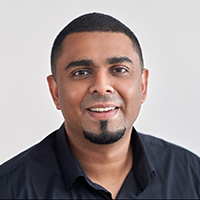
sgsmuscis-pgp-doctoral-engd-students
Shaikh Ismail SATHAKUTHAMBY
Director - Entity Technology Planning Office
Intake Year: August 2024 (Part-Time)
I have spent the last 19 years of my career focusing on digital transformation, technology management, and innovation, delivering transformative solutions and elevating client performance. In the past three years, I have had the privilege of applying my expertise to the healthcare industry, where I have been part of the roll-out of national programmes focused on preventive healthcare, improving patient outcomes, and optimizing operational efficiency through technology. I am convinced of the value that technology brings to healthcare by integrating intelligent, resilient, and cost-effective solutions to enhance the efficacy and value of Singapore’s public healthcare sector.
I chose the SMU Doctor of Engineering (EngD) programme to deepen my expertise in technology design, management, and system optimization. The interdisciplinary environment at SMU, combining engineering, technology, and healthcare, offers a unique opportunity to conduct impactful research. My pursuit of the SMU EngD programme reflects my commitment to driving meaningful change within Singapore’s healthcare ecosystem, leveraging technology to create a more inclusive, efficient, and technologically empowered society.
Through my research, I aim to develop scalable AI solutions that enhance healthcare efficiency, improve patient outcomes, and support proactive health management. I am particularly interested in developing AI-driven health and care plans that utilize models to assist in disease management and generate personalized treatment plans based on patient data. Additionally, I aim to extend these models to better integrate with communication channels, such as WhatsApp and Telegram, to improve patient communication and reduce the time clinicians and nurses spend tracking and managing patients. By doing so, I hope to improve overall healthcare outcomes, making treatments more tailored and effective for individual patients and enhancing the efficacy of Singapore’s public healthcare system.
Dissertation Committee
-
Research Advisor:
- Rajesh Krishna BALANProf
- TAN Kar WayAssociate Prof
Co-Research Advisor:
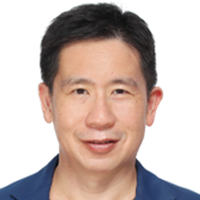
sgsmuscis-pgp-doctoral-engd-students
THIA Boon Sing
CTO, Strategic Partnership for Unicorns, Microsoft
Intake Year: August 2024 (Part-Time)
With over 30 years of experience at leading tech and consulting firms, I am excited to deepen my expertise in artificial intelligence (AI) through SMU’s SCIS EngD Program. This advanced study comes at a perfect time, as Generative Artificial Intelligence (GenAI) and the potential for Artificial General Intelligence (AGI) are set to transform industries. My goal is to apply the insights and methodologies from this program to harness these technologies effectively, ensuring their innovative, safe, and ethical use in our rapidly changing digital world.
Choosing SMU’s SCIS EngD program was a strategic decision, given the university's strong focus on Computer and Information Systems, Business Management, and Innovation—areas that closely align with my work with digital native startups and high-tech enterprises. This alignment offers a unique opportunity to enhance my understanding and capabilities, enabling me to continue delivering impactful solutions at the intersection of technology and business.
My proposed research focuses on creating values and enhancing safety through advancements in AI and GenAI. In an era where human-AI and AI-to-AI interactions are becoming increasingly important, my research aims to contribute significantly to the sustainable growth and ethical deployment of these technologies.
Through this program, I hope to not only build on my existing skills but also pioneer new frameworks that will shape the future of AI applications, ensuring they are both innovative and safe.
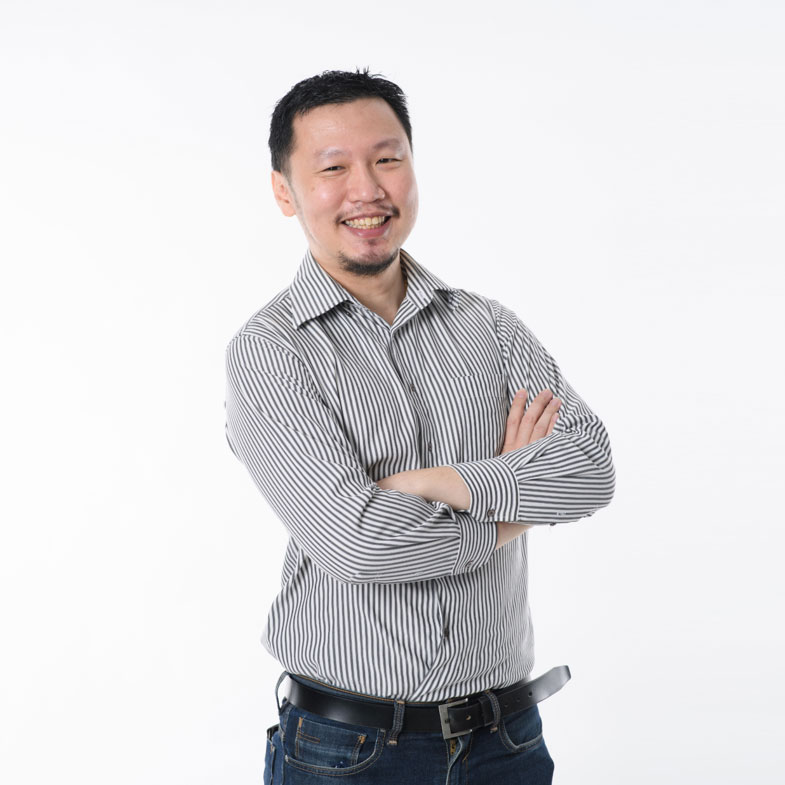
sgsmuscis-pgp-doctoral-engd-students
Andy HUE Tse Leong
Senior Deputy Director (Transformation), Maritime and Port Authority of Singapore
Intake Year: January 2024 (Part-Time)
“Business transformation and innovation” has been a consistent theme throughout my career, and continues to be an area which I remain passionate about. I am currently heading up the Transformation Office at the Maritime and Port Authority of Singapore (MPA), and am excited to be part of the machinery that will shape the future of Maritime Singapore to remain as global frontrunners. With digitalisation and decarbonisation key drivers shaping the next frontiers of transformation for the maritime industry, I was looking at a doctorate programme to add rigour to how I can better untangle system complexities to drive digital transformation.
Pursuing the EngD program with SMU was a straightforward decision. I completed my MBA with SMU many years back, and thoroughly enjoyed that experience. I truly believe and appreciate the global perspectives, industry connections and broad holistic education I received then, and am hoping that my EngD journey will also be an exciting and fulfilling journey of self-discovery.
I am particularly interested in the adoption of AI in the maritime industry, in particular to increase the capacity of our limited sea space for maritime activities, as well as to transform jobs to make maritime a “port of call” for talent. I believe we must effectively realise the value of AI for successful digital transformation to strengthen Singapore’s position as the premier global hub port and maritime centre.
Dissertation Committee
-
Research Advisor:
- Venky SHANKARARAMANVice Provost (Education) Prof
- HOE Siu LoonAssociate Prof
- Akshat KUMARAssociate Prof
Co-Research Advisor:
Dissertation Committee Member(s):
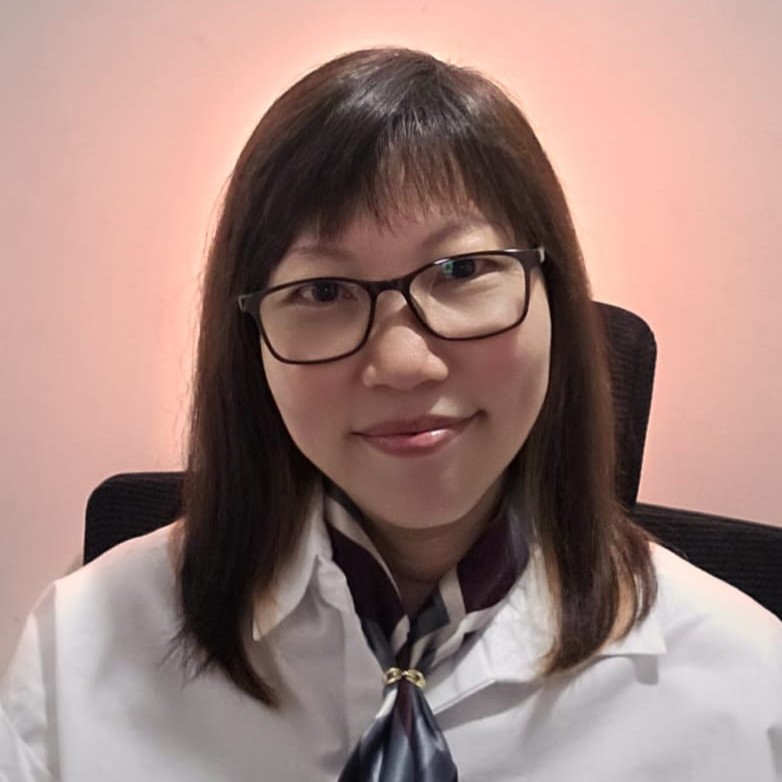
sgsmuscis-pgp-doctoral-engd-students
Jessica TAN Siao Wei
Associate Director (Research & Technology), AI Singapore
Intake Year: January 2024 (Part-Time)
As Greek philosopher Heraclitus quoted the saying of “change is the only constant in life”, we see that technology has also been constantly changing through the many decades. With this evolution in technology, the usage of AI has accelerated greatly with the advancement of AI models and programming. Not only does it enhance creativity in all possible areas, but also allows for the purse of innovative solutions which might not have been possible in the past.
From a student studying AI programming in the 1990s during my tertiary days, to a student studying AI in the 2020s in my postgraduate days, I observe a huge significant change in AI coding as well as its application in modern days. With Generative AI gaining tremendous popularity, the trajectory of AI usage will propel to a whole new level.
Medical science has been evolving with technology, and with the increasing usage of AI, they allow uncharted grounds of the medical field to be explored and researched. In today’s world, AI has been greatly used in the different fields in medical science such as diagnosing heart diseases, discovering of lung cancer, radiology, diagnosing stroke in emergency department, supporting healthcare systems to react and manage COVID-19 situations, as well as analysing images and medical data, and so on.
Embarking on my newfound journey with the SMU Doctor of Engineering, I am looking forward to research on the AI methodologies as well as its different techniques. The target domain of my research is medical data analysis, especially in the field of TCM (Traditional Chinese Medicine). I believed that this program will hone my research skills and grow my technical knowledge in the practical applications of AI in real life scenarios.
Dissertation Committee
-
Research Advisor:
- Rajesh Krishna BALANProf
- Swapna GOTTIPATIAssociate Prof
Co-Research Advisor:
Publications
Prior to EngD Candidature
Tan, S.W. (2018). The clinical practice of Minor Bupleurum decoction. Journal of Singapore College of Traditional Chinese Medicine, 6(11), 47-48,55.

sgsmuscis-pgp-doctoral-engd-students
Lisa ZHAO Lu
Senior Network Engineer, ByteDance
Intake Year: January 2024 (Part-Time)
With a career dedication that spans over 20 years in network engineering, I have cultivated a deep-seated expertise in orchestrating the design, research, and implementation of large-scale data centers, backbones, and metropolitan networks. In recent years, my work has been particularly focused on large-scale high-performance network technologies, which are the primary means of communication technology during GPU training. Throughout this experience, the objective has been to provide the most robust infrastructure support for advanced AI/ML applications. It became apparent that a significant challenge was in ensuring optimal integration of AI within our existing infrastructure.
My research will canter on enhancing the acceleration ratio and utilization rate of AI clusters. This involves optimizing the cluster architecture, allocating computing and storage resources most effectively, and improving the training processes' affinity with physical infrastructure. I aspire to continue to be an innovator at the vanguard of technology, tackling the evolving engineering challenges presented by ML/AI fields. The academic rigor and the focus on practice research at SMU’s Doctor of Engineering program align perfectly with my goal to develop groundbreaking solutions. I am eager to commence this new chapter of academic exploration.
Dissertation Committee
-
Research Advisor:
- David LOOUB Chair Prof
- Chris POSKITTAssociate Prof
Co-Research Advisor:

sgsmuscis-pgp-doctoral-engd-students
Vincent CHAN Tuck Seng
Engineering Officer, Singapore Navy
Intake Year: January 2024 (Part-Time)
Pursuing a Doctoral Degree was something I had been considering for a while. I wanted to pick up skills in Data Analytics (DA) and Machine Learning (ML) because I think there are boundless opportunities to make work safer, more efficient, and more effective in many different industries.
Being an electrical engineer by training and having worked in the engineering field for the last 20 odd years as a naval systems engineer, I have learnt that understanding DA and ML at a superficial level will be insufficient for me to evaluate DA/ML products and make design or acquisition recommendations professionally. Thus, pursuing the SMU’s Doctor of Engineering Degree is a natural decision.
My research interest will be on uncovering the latent power of Small Data. There are many segments of industry where Big Data is widely deployed. At the same time, there are others where Big Data is not effective due to limited data volume or computing power. By harnessing the latent power of Small Data, we can push ML capabilities to the edge and in niche domains that have yet to be explored.
I like to see Small Data-optimised techniques to advance ML deployment to areas where current Big Data solutions could not adequately serve. Some examples of these are embedded medical implants, remote exploration or military applications where high bandwidth and intensive computing power might not be available.
Dissertation Committee
-
Research Advisor:
- Rajesh Krishna BALANProf
- Swapna GOTTIPATIAssociate Prof
Co-Research Advisor:
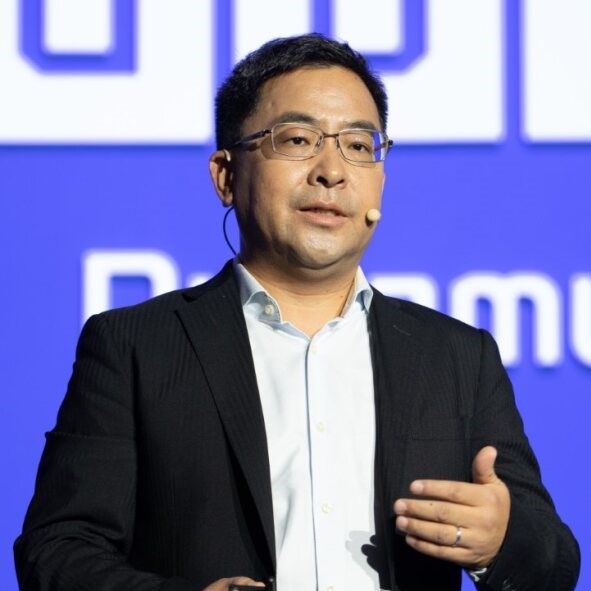
sgsmuscis-pgp-doctoral-engd-students
HUANG Donghao
VP R&D, Mastercard
IMDA SG Digital (Postgraduate) Scholar
Intake Year: August 2023 (Full-Time)
With more than 24 years of experience in technology and software development, I am currently pursuing a Professional Doctoral Degree in the SCIS EngD programme, with a focus on the application of generative AI technologies within the financial services industry. In my current role as VP R&D at Mastercard, I bring invaluable practical knowledge to my research.
My proposed research focuses on revolutionizing the financial sector by harnessing the power of generative AI to improve decision-making processes and enhance customer experiences. My primary research interests include risk management, investment strategy, and customer engagement. By leveraging technologies such as machine learning, artificial intelligence, and data analytics, I aim to develop advanced generative AI algorithms that can simulate various market scenarios, predict financial market trends, and build personalized chatbots and recommendation systems.
Centred at the intersection of AI, financial services, and software development, my research is aimed at creating adaptive, resilient systems to address complex challenges and explore innovative solutions. Ultimately, I aspire to develop innovative AI-driven solutions that address critical challenges and capitalize on new opportunities. By combining a robust academic foundation with extensive industry experience, I am poised to make a meaningful impact in the field, driving the responsible and sustainable use of AI in financial services.
Dissertation Committee
-
Research Advisor:
- WANG ZhaoxiaAssociate Prof
- NGO Chong WahLee Kong Chian Prof
- SUN QianruAssociate Prof
Co-Research Advisor:
Dissertation Committee Member(s):
Publications
During EngD Candidature
Huang, D., Chew S., Dutkiewicz A., & Wang, Z. (2025). LLM-as-a-Judge for Scalable Test Coverage Evaluation: Accuracy, Operational Reliability, and Cost. Accepted for publication in AAAI 2026 Workshop on Next-Gen Code Development with Collaborative AI Agents.
Huang, D., Teo, N., Chekuru, A., Deutschman, E., & Wang, Z. (2025). Deploying Reasoning LLMs for Sentiment Analysis: Architecture Trade-offs on Consumer Hardware. Accepted for publication in 2025 IEEE International Conference on Data Mining Workshops (ICDMW).
Samuel, S., Huang, D., Tan, J. & Wang, Z. (2025). Integrating LLM Sentiment Analysis into Machine Learning for Soccer Betting. Accepted for publication in 2025 IEEE International Conference on Data Mining Workshops (ICDMW).
Huang, D., Ng, D., Pen, H., Wang, Z., & Cambria E. Evaluating the Impact of LLM-Manipulated Content on Fake News Detection. In Pacific-Asia Conference on Knowledge Discovery and Data Mining (pp. 375-386). Springer, Singapore.
Teo, N., Huang, D., Cambria E., & Wang, Z. Large Language Models for Logical Fallacy Detection. In Pacific-Asia Conference on Knowledge Discovery and Data Mining (pp. 387-398). Singapore: Springer Nature Singapore.
Huang, D., & Wang, Z., LLMs at the Edge: Performance and Efficiency Evaluation with Ollama on Diverse Hardware. In 2025 International Joint Conference on Neural Networks (IJCNN). IEEE, 2025, pp. 1–8.
Huang, D., Nguyen, T. S., Liausvia, F., & Wang, Z. (2025, April). RAP: A Metric for Balancing Repetition and Performance in Open-Source Large Language Models. In Proceedings of the 2025 Conference of the Nations of the Americas Chapter of the Association for Computational Linguistics: Human Language Technologies (Volume 1: Long Papers) (pp. 1479-1496).
Huang, D., Malwe, G., Varshney, R., Tse, A., & Wang, Z. (2025, March). Scalable Invoice Reconciliation for SMEs: Edge-Deployed LLMs in Multi-Agent Systems. In 2025 International Conference on Data Science, Agents & Artificial Intelligence (ICDSAAI) (pp. 1-6). IEEE.
D. Huang and Z. Wang, Optimizing Chinese-to-English Translation Using Large Language Models, 2025 IEEE Symposium on Computational Intelligence in Natural Language Processing and Social Media (CI-NLPSoMe), Trondheim, Norway, 2025, pp. 1-7, doi: 10.1109/CI-NLPSoMe64976.2025.10970768.
D. Huang and Z. Wang, Logical Reasoning with LLMs via Few-Shot Prompting and Fine-Tuning: A Case Study on Turtle Soup Puzzles, 2025 IEEE Symposium on Computational Intelligence in Natural Language Processing and Social Media (CI-NLPSoMe Companion), Trondheim, Norway, 2025, pp. 1-5, doi: 10.1109/CI-NLPSoMeCompanion65206.2025.10977921.
Wang, Z., Huang, D., Cui, J. et al. A review of Chinese sentiment analysis: subjects, methods, and trends. Artif Intell Rev 58, 75 (2025).
Huang, D., Fu, X., Yin, X., Pen, H., & Wang, Z. (2024). Automating maritime risk data collection and identification leveraging large language models. In 2024 IEEE International Conference on Data Mining Workshops (ICDMW) (pp. 433–439). IEEE.
Huang, D., Hu, Z., & Wang, Z. (2024, June). Performance Analysis of Llama 2 Among Other LLMs. In 2024 IEEE Conference on Artificial Intelligence (CAI) (pp. 1081-1085). IEEE.
Huang, D., & Wang, Z. (2024, April). Evaluation of orca 2 against other llms for retrieval augmented generation. In Pacific-Asia Conference on Knowledge Discovery and Data Mining (pp. 3-19). Singapore: Springer Nature Singapore.
Huang, D., Samuel, S., Hyunh, Q. T., & Wang, Z. (2024, April). From Tweets to Token Sales: Assessing ICO Success Through Social Media Sentiments. In Pacific-Asia Conference on Knowledge Discovery and Data Mining (pp. 57-69). Singapore: Springer Nature Singapore.
Prior to EngD Candidature
Lin, W. B., Huang, D. H., Zhang, X., & Brandenberger, R. (2001). Nonthermal Production of Weakly Interacting Massive Particles and the Subgalactic Structure of the Universe. Physical Review Letters, 86(6), 954–957. https://doi.org/10.1103/PhysRevLett.86.954
Huang, D. H., Lin, W. B., & Zhang, X. M. (2000). Remark on approximation in the calculation of the primordial spectrum generated during inflation. Physical Review D, 62(8), 087302. https://doi.org/10.1103/PhysRevD.62.087302
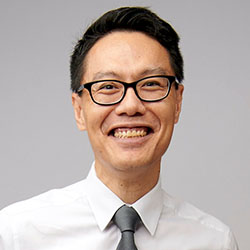
sgsmuscis-pgp-doctoral-engd-students
HUANG Shaofei
Group Chief Information Security Officer, SMRT Corporation Ltd
IMDA SG Digital (Postgraduate) Scholar
Intake Year: August 2023 (Full-Time)
Pursuing a Professional Doctoral Degree in the SCIS EngD programme empowers me to drive the advancement of cyber-resilient systems in critical infrastructure. My passion lies in conducting ground-breaking research focused on designing and developing cyber-resilient systems, with a specific emphasis on cyber-physical systems and proactive defence mechanisms. The SCIS EngD programme stood out to me due to its commitment to interdisciplinary collaboration, strong industry partnerships, and seamless integration of academic rigor with real-world experience.
Drawing upon a robust academic foundation and 24 years of hands-on experience as a cybersecurity professional, including my current role as a Group Chief Information Security Officer, I bring invaluable practical knowledge to my research.
In my proposed research, I aim to leverage technologies such as machine learning, artificial intelligence, and data analytics to enhance the detection and mitigation of cyber threats in critical infrastructure systems. My ultimate goal is to develop proactive defence mechanisms and incident response strategies that exhibit both robustness and adaptability. By effectively bridging the gap between theoretical knowledge and practical insights, my work seeks to create a meaningful impact that extends beyond the confines of academia.
Through improving the detection and mitigation of evolving cyber threats, my work will significantly improve cyber resilience, thus ensuring uninterrupted continuity of essential services in critical infrastructure systems. Moreover, the development of proactive defense mechanisms and incident response strategies will empower organisations to effectively combat cyber-attacks and minimise their potential impact.
In conclusion, my pursuit of a Professional Doctoral Degree in the SCIS EngD programme enables me to make substantial contributions to the advancement of cyber-resilient systems. By combining my strong academic foundation with extensive practical experience, I strive to explore innovative approaches and address the complex challenges faced by critical infrastructure systems. Through my research, I am determined to strengthen the detection and mitigation of cyber threats while ensuring the adaptability and robustness of systems. Ultimately, the value of this research lies in safeguarding critical infrastructure and ensuring the seamless continuity of essential services in the face of emerging cyber threats.
Dissertation Committee
-
Research Advisor:
- Chris POSKITTAssociate Prof
- SHAR Lwin KhinAssociate Prof
- JIANG LingxiaoProf
Co-Research Advisor:
Dissertation Committee Member(s):
Publications
During EngD Candidature
Huang, S., Poskitt, C. M., & Shar, L. K. (2025). Security Modelling for Cyber-Physical Systems: A Systematic Literature Review. ACM Transactions on Cyber-Physical Systems.

sgsmuscis-pgp-doctoral-engd-students
Nicole Anne Hui Ying TEO
Artificial Intelligence Specialist, Kapap Academy
Intake Year: August 2023 (Full-Time)
As an Australian who has lived here for over two decades in Singapore, I am most familiar with how vibrant the technological eco-systems have been in this country. Even though I have access to free post graduate education in Australia, the SMU Engineering Doctoral (EngD) program so impressed me that I opted to continue to stay in Singapore to be part of this program.
What drew me to the SMU professional doctoral degree is firstly, the teaching pedagogy - which adopts a more blended approach of academic coursework coupled with practical industry / project-based research training. I find this approach best suited for my learning preferences than the more theoretical and research-oriented approach of the standard PhD program. Secondly, I also like the focus on solving practical problems in a real-world context more appealing than the focus on originality in research and evaluation of theory that is more typical of an academic PhD. Third, it is my long-term career interest to set up a technology start-up of my own at some point in my life. To this end, I believe a EngD doctoral program will serve my long-term career aspirations better.
My interests lie in researching natural language processing and how ChatGPT or any generative AI (GAI) can be applied in the real world. Specifically, utilizing GAI to create language models with a focus on a particular industry or domain, and developing the ability to comprehend and produce text unique to that field. This would entail calibrating the model to the particular language and terminology used in that domain by training it on a sizable quantity of text data unique to that domain. This research has practical implications as generative AI has the potential to benefit multiple industries.
Dissertation Committee
-
Research Advisor:
- WANG ZhaoxiaAssociate Prof
- NGO Chong WahLee Kong Chian Prof
Co-Research Advisor:
Publications
During EngD Candidature
Teo, N., Huang, D., Cambria, E. and Wang, Z.(2025). Large Language Models for Logical Fallacy Detection. In Pacific-Asia Conference on Knowledge Discovery and Data Mining (PAKDD) workshop, Trends and Applications in Knowledge Discovery and Data Mining Proceedings (pp. 387-398).
Teo, N., Wang, Z., Ghe, E., Tan, Y.S., Oktavio, K., Lewi, A.V., Zhang, A., & Ho, S.-B. (2024). Dlvs4audio2sheet: Deep learning-based vocal separation for audio into music sheet conversion. In Pacific-Asia Conference on Knowledge Discovery and Data Mining (PAKDD) workshop, Trends and Applications in Knowledge Discovery and Data Mining Proceedings (pp. 95-107).
Pen, H., Teo, N., & Wang, Z. (2024), Comparative Analysis of Hate Speech Detection: Traditional vs. Deep Learning Approaches, IEEE Conference on Artificial Intelligence (IEEE CAI 2024)
Jiang, J., Teo, N., Pen, H., Ho, S.-B. and Wang, Z. (2024). Converting Vocal Performances into Sheet Music Leveraging Large Language Models. In 2024 IEEE International Conference on Data Mining Workshops (ICDMW) (pp. 445-452). IEEE.
Tan, Y.S., Teo, N., Ghe, E., Fong, J., & Wang, Z. (2023, Dec). Video sentiment analysis for child safety. In 2023 IEEE international conference on data mining workshops (ICDMW) (pp. 783-790)
Teo, N., & Wang, Z. (2025). Bias Detection and Mitigation in Large Language Models. In 2025 IEEE International Conference on Data Mining Workshops (ICDMW)
Huang, D., Teo, N., Chekuru, A., Deutschman, E., & Wang, Z. (2025). Deploying Reasoning LLMs for Sentiment Analysis: Architecture Trade-offs on Consumer Hardware. In 2025 IEEE International Conference on Data Mining Workshops (ICDMW)
Teo, N., & Wang, Z. (2025). Mitigating Label Bias in Large Language Models via Leave-One-Out Calibration, A working paper targeting the 2026 International Conference on Artificial Intelligence and Statistics (AISTATS)
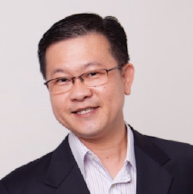
sgsmuscis-pgp-doctoral-engd-students
EE Fook Ming
Intake Year: August 2023 (Part-Time)
With over 25 years of diverse experience, my career commenced in software development and engineering, and later expanded into data communication network engineering and distributed systems. Progressing through roles as a sysadmin, network manager, pre-sales and Senior IT Architect, I eventually shifted my focus to regional business development, driving sales and business growth while providing solution consulting in various industries. My expertise spans telecommunications, multimedia platforms, IT optimizations, and cutting-edge technologies such as 5G, SDWAN, Security, Network Infrastructure, and MultiCloud Solutions in driving technology sales. Having completed two engineering and one business Master's, I now brace myself to take the next step – pursuing the Terminal Degree.
As an enterprising and aspiring doctoral candidate, I look forward to embarking on the distinctive SMU Engineering Doctorate’s practice-led approach to applied research. My transformative research endeavors venture into harnessing the potential of the dynamic convergence of AI/ML, cybersecurity, and quantum information science, charting a course towards cutting-edge technology to reshape the digital landscape and foster innovation. I am driven by a passion for industry transformation, discovering opportunities by solving real-world challenges, and creation of meaningful impact across various industry domains.
My research will be primarily focused on industry applications, delving into AI/ML techniques inspired by cutting-edge developments in deep learning, natural language processing, computer vision, and hybrid supervised and unsupervised machine learning algorithms. I aim to explore how AI/ML can enhance and integrate cybersecurity measures, encompassing anomaly detection, intrusion prevention, threat intelligence, network security, and vulnerability assessment. Additionally, my research will emphasize the significance of human elements, particularly human behavior, and its implications for cybersecurity.
With a hands-on approach, I am committed to understanding the seamless integration of AI/ML technologies into existing security practices, empowering industries to respond swiftly and effectively to cyber threats. Moreover, recognizing the real-world impact of AI/ML technologies, I prioritize ensuring the security and reliability of AI/ML systems themselves. A comprehensive understanding of designing and implementing robust and trustworthy AI systems is crucial to instilling confidence in AI-powered applications within the cybersecurity realm.
The results of these studies have the potential to be generalized and extended, providing valuable solutions applicable to data science and big data engineering in general.
To further enrich my research, I plan to infuse it with quantum information science, exploring the transformative potential of quantum computing and cryptography. Envisioning a future where industries can harness the power of quantum technologies in cybersecurity, such as data privacy, integrity, and secure communications, as well as highperformance computing platforms, excites me. This forward-looking perspective promises to revolutionize digital transformation in high performance computing, next generation AI/ML, and digital security across industries, advancing fields like finance, healthcare, telecommunications, and beyond.
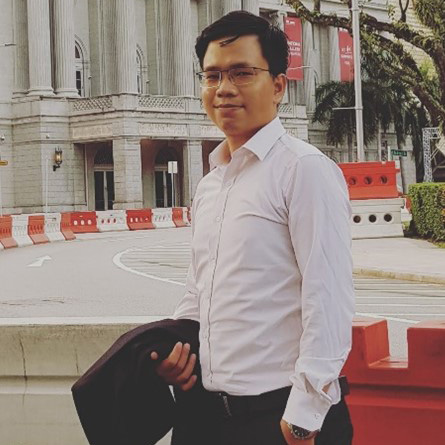
sgsmuscis-pgp-doctoral-engd-students
NGUYEN Huynh Long Hung
Credit Analyst, BNP Paribas
Intake Year: January 2023 (Full-Time)
During my 7+ years working in the banking industry, I had the chance to realize the importance of new financial technologies and data analytics in solving the industry’s problems, improving business processes, creating new, innovative products and solutions for customers. As an MITB program graduate, I was well equipped with practical trainings in financial technologies, novel business models, statistical and data analysis, as well as independent research skills. These have laid a solid academic foundation to pursuing the EngD program.
Sustainable finance has attracted great interests from investors, companies, financial institutions, and regulators. Many global banks have adopted Environmental, Social and Governance (ESG) criteria in their lending decision making, while more and more companies are keen on monetary incentives of sustainable financing besides long-term benefits of sustainability. As a relatively new area, sustainable finance has many intrinsic technical problems that have not been tackled yet.
During the EngD program, I will conduct research on how digital technologies, such as blockchain, internet of things, and machine learning, can foster the development and adoption of sustainable finance. SCIS is home to a world-renowned faculty, and there are many professors possessing very strong expertise in research fields that are relevant to my proposed topic. Moreover, Singapore is a global financial center. Its government has also set a vision for the country to become a regional hub for sustainable finance. Consequently, there have been schemes rolled out to promote this emerging form of financing. Doing my proposed research in Singapore, thus, would benefit from a spillover of such promotions.
Dissertation Committee
-
Research Advisor:
- Alan MEGARGELAssociate Prof
- Rajesh Krishna BALANProf
- Paul Robert GRIFFINAssociate Prof
Co-Research Advisor:
Dissertation Committee Member(s):
Publications
During EngD Candidature
Hung, N. H. L., & Megargel, A. (2025). Application of blockchain and internet of things in ESG data platforms. In Handbook of Blockchain, Digital Finance, and Inclusion, Volume 3 (pp. 323-333). Academic Press.
Ngyuen, H.H.L., & Megargel, A. (2024). Revolutionizing ESG Risk Assessment through Machine Learning: Insights from U.S. Corporations, Annual International Open Innovation Conference 2024
Prior to EngD Candidature
Nguyen, H.H.L., & Megargel, A. (2022). Strategic Business Models under Open Banking: A Guideline for Incumbent Banks. Journal of Digital Banking 6(4) https://ink.library.smu.edu.sg/sis_research/7151/
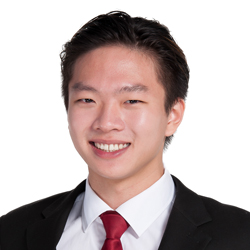
sgsmuscis-pgp-doctoral-engd-students
Joel LIM
Temasek Holdings (Private) Limited
Intake Year: January 2023 (Part-Time)
Over the course of my career, I have been actively blending the use of technology with investment and business functions to design and deploy solutions that create a lasting impact.
My research centers around employing and enhancing appropriate machine learning algorithms such as neural networks for process analysis, optimisation, remediation and predictive capabilities to improve process flows. Under the mentorship of a world-class faculty, I endeavor to create a solution that can be scalable to a variety of workflow scenarios.
With my engineering and econometrics background, I believe that SMU's Doctor of Engineering will allow me to deliver proper industrial solutions necessary in furthering our digital economy to the next level. The various centres, labs and initiatives that SMU SCIS has will also provide excellent insights and exploration to how we can further optimise the financial technology scene using artificial intelligence.
Dissertation Committee
-
Research Advisor:
- LAU Hoong ChuinProf
- TAN Kar WayAssociate Prof
Co-Research Advisor:
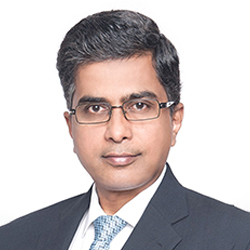
sgsmuscis-pgp-doctoral-engd-students
Nirav Janak PARIKH
Regional Product Director - Listed Derivatives, Citigroup Global Markets Singapore
Intake Year: August 2022 (Part-Time)
After my graduate studies in Electronics and Computer Science, my career took me into Finance and Banking where I developed expertise in Markets and Trading. But beneath this, my passion for technology remained and the emerging developments in Artificial Intelligence and Distributed Ledgers had me captivated and yearning for more. I was keen to engage in applied research at the rich intersection of Markets and Technology. I embarked on this quest by ‘dipping my toes’ into the MTech program at NUS. While meant to serve as a litmus test of my aspirations, that journey became my inspiration, and by the time I completed the degree in 2022, the destination had changed to a milestone with a longing to continue the exploration and adventure.
While there are several options today for open learning in almost every subject, when pursuing areas of learning outside one’s immediate domain, it helps to be part of an environment that is stimulating and a program that provides a structured approach towards this endeavour. The industry-experienced faculty and student cohort combined with a city campus readily accessible after work made SMU the institute of choice, and the EngD program with its balanced focus on academia and practice research helped seal the decision.
My interests are diverse and varied across convergence across Markets and Trading. Current areas of active research include ‘Smart Beta Factor Allocation, and Best Execution Algorithms using Deep Learning & Evolutionary Optimization’ and ‘Real-time Clearing and Settlement of Derivatives using Decentralized Autonomous Organization’.
Dissertation Committee
-
Research Advisor:
- Alan MEGARGELAssociate Prof
- SUN QianruAssociate Prof
Dissertation Committee Member(s):
Publications
Parikh, N. J., & Megargel, A. (2025). Using vector embeddings to model macroeconomic regimes. In Handbook of Blockchain, Digital Finance, and Inclusion, Volume 3 (pp. 239-250). Academic Press.
Prior to EngD Candidature
Loh, L. K. Y., Kueh, H. K., Parikh, N. J., Chan, H., Ho, N. J. H., & Chua, M. C. H. (2022). An Ensembling Architecture Incorporating Machine Learning Models and Genetic Algorithm Optimization for Forex Trading. FinTech, 1(2), 100–124. https://doi.org/10.3390/fintech1020008
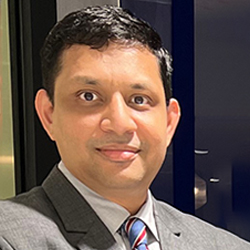
sgsmuscis-pgp-doctoral-engd-students
Ramaprasad RAMAKRISHNAN
Senior Vice President, United Overseas Bank Ltd.
Intake Year: August 2022 (Part-Time)
I have 22+ years of experience in Banking Technology and Operations, delivering transformation programs and, building, leading and motivating cross-cultural teams. I am currently working in United Overseas Bank Ltd, implementing tranformation projects in the Singapore Industry Integration Initiatives for Trade and Supplier Financing domain. Prior to this role, I worked in Citi’s Technology and Operations division, with teams across multiple geographies and delivered strategic programs. I am also serving as an adjunct faculty in SMU, lecturing topics on Digital Banking Architecture and Financial Markets for undergraduates.
As a veteran banking professional, I strongly believe constant learning is one of key principles to adopt. As an alumnus and adjunct faculty of SMU, I have first hand experience of knowledge, values and learning experience in SMU. In pursuit of higher educational objective, I decided to join the EngD programme as this provides a well-rounded learning experience covering relevant technology topics and focuses on quality research themes whichleverage my professional expertise.
Financial scams are on the rise.... We read in daily newspapers, watched news clips and repeated broadcast in social media posts about an alarming rise in financial scams in Singapore. In Singapore, we may be assured of personal safety in leaving a S$2000 mobile phone to block a seat in a crowded food-court, but unable to protect ourselves from the prying eyes operating millions of miles away to find a way to get data from the same phone, prey on our emotions, despair or greed and rob us of our hard-earned money and life-savings.
When someone is scammed, it becomes “blame the victim” discussion where lot of feedback were provided and reactive lessons were documented – but do we really learn the lesson here and attempt to prevent such an incident from happening to the next person? What are we doing as an advanced society to prevent these from happening instead of merely repeated warnings shared to the citizens?
I would like to perform a detailed analysis on this topic in Singapore, the extent of reporting and resolutions, and identify ways for new technologies to mitigate the problem. I intend to use my professional experience and learning from the EngD programme into this research and target to recommend systemic measures and controls to mitigate this issue.
Dissertation Committee
-
Research Advisor:
- Alan MEGARGELAssociate Prof
- Paul Robert GRIFFINAssociate Prof
- Assistant Professor Simon SCHILLEBEECKX
Co-Research Advisor:
Dissertation Committee Member(s):